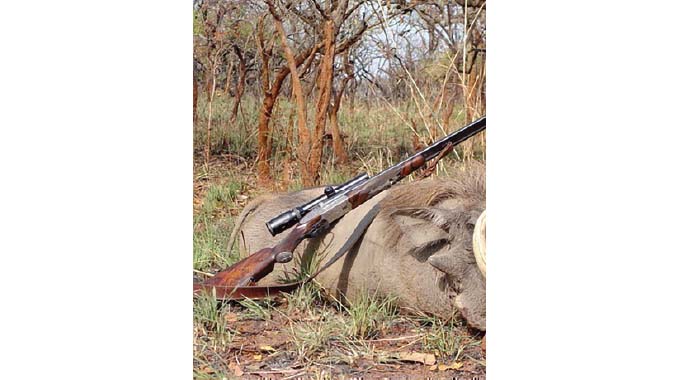Sadc rural communities demand win-win benefits from international hunting
The Chronicle
9/12/2021

Emmanuel Koro
ONCE considered to be voiceless and almost powerless, Southern African hunting communities are increasingly becoming powerful and are now demanding win-win benefits from international hunting by removing the middlemen.
The Southern African hunting communities representatives say the middlemen for international hunting are the local and foreign safari hunting companies that market Southern Africa as a must-visit international hunting destination; where the big five are hunted.
These hunting companies buy the international wildlife hunting quotas from SADC hunting communities then sell the huntable wildlife to international hunters and also handle their hunts in Africa.
Despite acknowledging that they receive payment from the safari hunting companies, the SADC hunting communities that own the wildlife think they should be getting paid more than what they are currently receiving.
Hence their call to remove the middlemen.
However, the representatives of the SADC hunting communities know the reality that currently they lack the skills to market their areas as attractive international hunting destinations.
They also don’t have skilled professional hunters to handle hunting for the international hunters when they come to Africa.
Therefore, the hunting communities ironically need the safari hunting companies that they would like to remove as middlemen; to first train them to market their hunts overseas and also to help them train professional hunters who would in the future handle the hunts of international hunters who come to Africa.
“We think this is the right time to remove the middleman and let communities market their own natural resources,” said a member of SADC Community Leaders Network (SCLN) and CEO Ngamiland NGOs, Mr Siyoka Simasiku. “Communities should not be stakeholders but shareholders.”
However, Mr Siyoka said that this transition from middlemen to hunting community self-marketing will take time as “there is need for capacity building.”
The outgoing chairperson of SCLN, Ms Maxi Louis, and the Director of Namibia’s National Association of Community-based Organisations (NACSO) said that, “70 percent of rural people rely on natural resources in Africa, including hunting.”
She said that the challenges of Southern African communities that co-exist with wildlife include limited rights and benefits from “our resources and increased vulnerability to poverty.”
“Communities living closest to wildlife and the natural resources are generally the poorest,” said Ms Louis. “We are open to a partnership that looks at win-win. We need a regional monitoring and information system.”
Meanwhile, Chief Timex Maolosi of Botswana’s Samunkuyo Trust said that all the community trusts in Botswana met in Maun recently and recommended the need for capacity building of hunting communities to enable them to market their wildlife to preferred markets.
“Communities should become shareholders or owners of the hunting industry in their localities,” said Chief Maolosi. “There is a need to do away with middlemen in the hunting industry but it will take time to achieve capacity building.”
Elsewhere, the Botswana Government is working towards introducing a Community Based Natural Resources Management Bill, in order to ensure that local communities “don’t get a bad deal from hunting contracts.”
“Government will look at the agreements to ensure that communities are not getting a bad deal,” said Botswana Department of Wildlife and National Parks (DWNP), Dr Kabelo Senyatso.
“We discovered some of the communities did not get a fair share in some of the 2021 hunting agreements.
The DWNP reserves the right to determine whether or not the agreement between the community and the safari operator is fair or not.”
He said that the Government of Botswana is working towards introducing a law that would ensure that communities receive fair benefits from the use of their natural resources, including hunting.
“We are extremely happy when communities receive direct benefits from wildlife,” said Chairman of the Botswana Wildlife Producers Association, Mr Basimane Masire – a member of former President Masire’s family.”
It gives good buy-in and conservation support from the communities that bear the costs of co-existing with wildlife.”
Meanwhile, Professor Brian Child of the University of Florida has called for the expansion of the hunting industry in the SADC region in order to increase the conservation of land.
“Hunting supports 60-80% of conservation land in the SADC region,” said Professor Child. “The Southern African communities are looking after wildlife and it’s increasing.”
He said that “wildlife is destroyed” when you take away ownership.
“The world has lost over 80% of wildlife because they don’t allow people to own it,” said Professor Child. “But we don’t lose livestock the same way because they own it.”
Emmanuel Koro is a Johannesburg-based international award-winning independent environmental journalist who writes extensively on environment and development issues in Africa.
